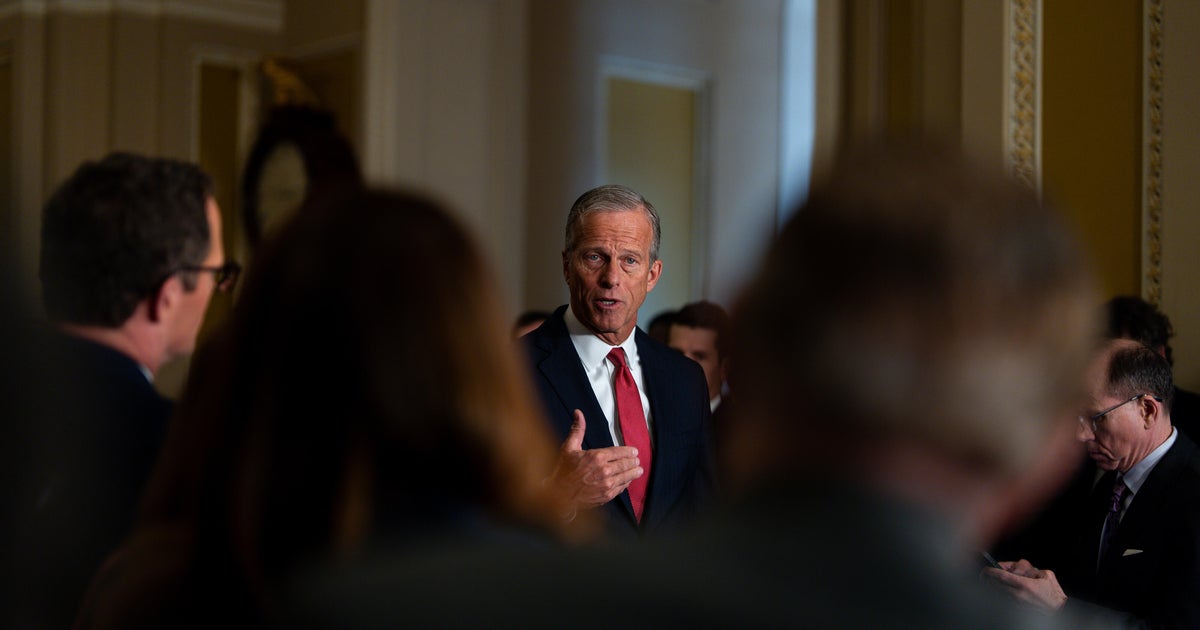Rand Paul becomes first senator to test positive for coronavirus
Washington — Republican Senator Rand Paul of Kentucky has tested positive for the coronavirus and is in quarantine, his office announced Sunday. Paul is the first member of the U.S. Senate to test positive for the virus and the third member of Congress to contract it, Representatives Mario Diaz-Balart, a Florida Republican, and Ben McAdams, a Utah Democrat, announced last week that they were battling COVID-19, the disease caused by the virus.
"He is asymptomatic and was tested out of an abundance of caution due to his extensive travel and events," Sergio Gor, Paul's deputy chief of staff, said in a statement. "He was not aware of any direct contact with any infected person. He expects to be back in the Senate after his quarantine period ends and will continue to work for the people of Kentucky at this difficult time."
Gor added that Paul's office in Washington, D.C., began operating remotely 10 days ago, meaning that "virtually no staff" has had contact with the senator.
Paul was in the Capitol last week and was one of eight senators who voted against a coronavirus relief package on Wednesday that allows for free testing and provides paid leave to Americans affected by the outbreak. The legislation passed the Senate and was signed into law by President Trump on Wednesday night. Senators are currently weighing "phase three" of the legislative response, a massive spending bill with a potential price tag north of $1.5 trillion.
He also attended a lunch with other Senate Republicans on Friday and was working out in the Senate gym as recently as Sunday morning, congressional sources told CBS News.
GOP Senator Mitt Romney of Utah told reporters following the announcement from Paul's office that senators are "going to seek medical advice as to what action we should take to make sure that we don't in any way spread this virus ourselves."
"We had a lunch together with Rand and hope he's doing very well, but we have to determine whether any of us should self-quarantine as a result of being in the same room," he said.
The Louisville Courier-Journal reported last week that Paul, along with Congressman John Yarmuth and Kentucky Governor Andy Beshear, attended an event on March 7 with two people who later tested positive for the coronavirus. Last year, Paul had part of his lung removed after it was damaged in a 2017 assault by his neighbor.
After the coronavirus reached the House last week, lawmakers began rethinking whether they should continue with in-person voting on the floors of the House and the Senate. The positive tests from Diaz-Balart and McAdams led more than a dozen members to announce they would be self-quarantining after having contact with either of the lawmakers, sidelining them until Friday.
On Thursday, House Rules Committee Chairman Jim McGovern, a Democrat from Massachusetts, said he would conduct a study on the feasibility of remote voting for lawmakers. Senators Dick Durbin, a Democrat from Illinois, and Rob Portman, a Republican from Ohio, introduced a resolution to change Senate rules to allow members to cast their votes remotely during a national crisis.
The proposal to allow for remote voting gained support from rank-and-file senators, but Senate Majority Leader Mitch McConnell and Senate Rules Committee Chairman Roy Blunt, a Missouri Republican, indicated last week they were opposed to the plan.
Nancy Cordes and Arden Farhi contributed to this report.



